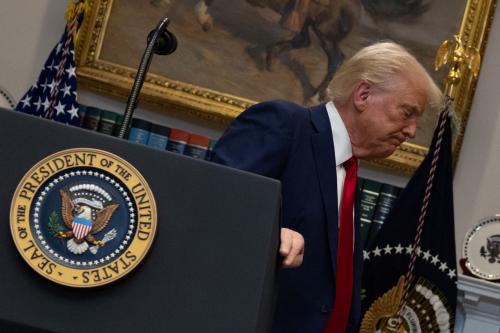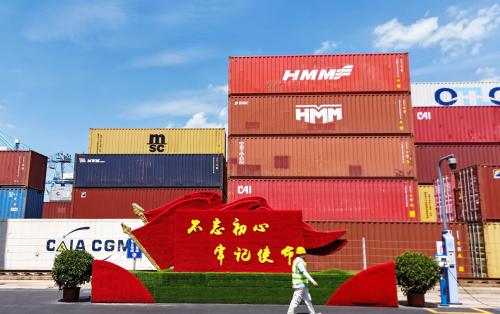Last week, Representative Karen Bass (D-CA) publicly urged Senate Majority Leader Mitch McConnell (R-KY) to send the African Growth and Opportunity Act (AGOA) to President Obama for his signature. Over the last several weeks, AGOA has passed both the Senate and the House with exceedingly strong bipartisan support.
Representative Bass is absolutely right in her urgency. AGOA is a non-reciprocal preference program and has no relevance to the current debate in Congress over the Trade Adjustment Authority (TAA) and Trade Promotion Authority (TPA) except for its unfortunate new role as a political football. Congress has already voted to reauthorize AGOA for another 10 years. Even though the House and Senate versions were slightly different, these differences should be worked out in conference and a unified AGOA bill sent to President Obama to sign into law as soon as possible.
Delaying AGOA’s renewal undermines the cornerstone of the U.S. economic development strategy in Africa. After all, AGOA is intended to stimulate export-led economic growth in the nearly 40 countries in sub-Saharan Africa that participate in the program. In its lifetime, AGOA has led to the creation of 350,000 direct jobs and 1 million indirect jobs in Africa. According to the International Trade Administration in the Department of Commerce, the legislation also has contributed to more than $50.2 billion of U.S. exports to the region, which supports 250,000 American jobs.
AGOA is set to expire on September 30. With less than 100 days remaining in the life of the legislation, many companies find themselves in a bind: Apparel and footwear companies, who place orders months in advance so that their goods are in stores on time for specific seasons, cannot rely on the trade preferences that make ordering from Africa advantageous, likely forcing them to go elsewhere. This situation is particularly troubling for many AGOA countries, as apparel and footwear companies have created the largest number of jobs there. Delaying AGOA’s renewal will inevitably impact America’s influence in Africa, arguably the most pro-U.S. region in the world.
As of last week, leaders in Congress and the administration have embarked on a high-risk strategy that aims to generate enough Democratic votes in the House to pass TAA, a program that provides support and training to American workers who have lost jobs to the relocation of U.S. companies to other markets.
Democrats have supported TAA for 40 years but labor has mobilized significant support among House Democrats against the program as part of its strategy to oppose the Trans-Pacific Partnership free trade agreement. Therefore Senator McConnell will work to tie AGOA to TAA in hopes of inducing Democrats, who strongly support the Africa legislation, to vote to renew the worker retraining program.
Equally important to the passage of the Pacific free trade agreement is the special authority, TPA, that would enable President Obama to submit the trade deal to Congress for an up-or-down, haggle-free vote. President Obama has said that if the trade authority and the worker retraining program do not arrive on his desk together, he will not sign either.
It is expected that a vote on the new legislation, which links AGOA to TAA, could take place on Tuesday. It would then have to go back to the House as it is different from the one originally passed. If passed in the House it would then go to the president for his signature.
According to this new strategy, Congressional leaders hope to have all trade bills, including AGOA, TPA, and TAA, to the president for his signature by July 4. However, TPA will have to pass the Senate first, and that will clear the way for the new bill that links AGOA and TAA to be brought up for a vote. If these two pieces of legislation do not get enough votes in the Senate or the House, AGOA is likely to expire, as it would be extremely difficult to get any trade legislation enacted in the next several months as the U.S. presidential contest intensifies. Presidential candidates are notoriously reluctant to embrace any free trade initiative while running for office.
There is no rationale for AGOA to be held hostage to this political maneuvering. Senator McConnell should forward the existing AGOA legislation to President Obama as soon as possible given that the bill has already been vetted and approved in both chambers of Congress. If not, President Obama and the leadership of the U.S. Congress run the risk of snatching defeat from the jaws of victory.
Note:
This piece reflects the views of the author only and not the Brookings Institution nor the Africa Growth Initiative.
The Brookings Institution is committed to quality, independence, and impact.
We are supported by a diverse array of funders. In line with our values and policies, each Brookings publication represents the sole views of its author(s).




Commentary
AGOA: Snatching defeat from the jaws of victory?
June 22, 2015